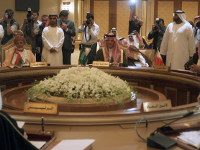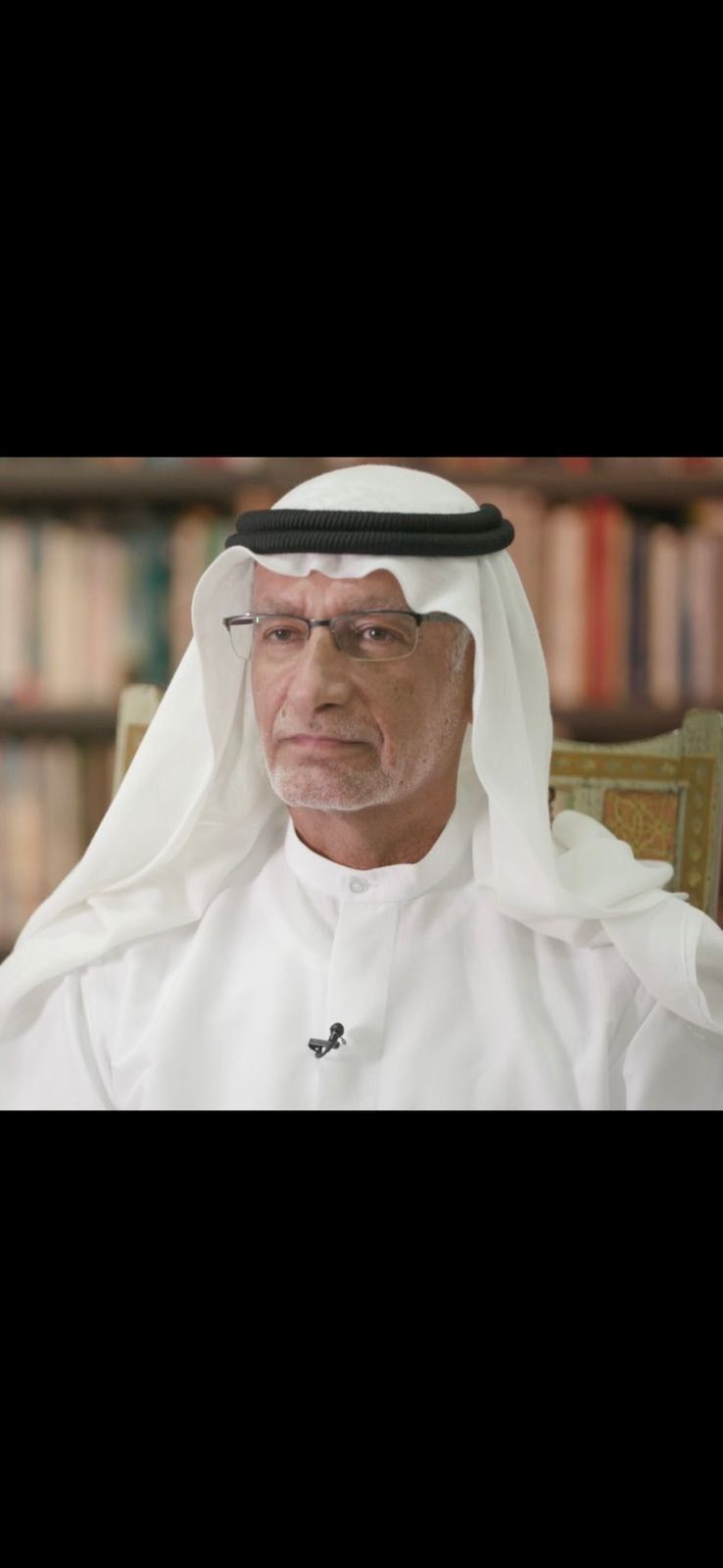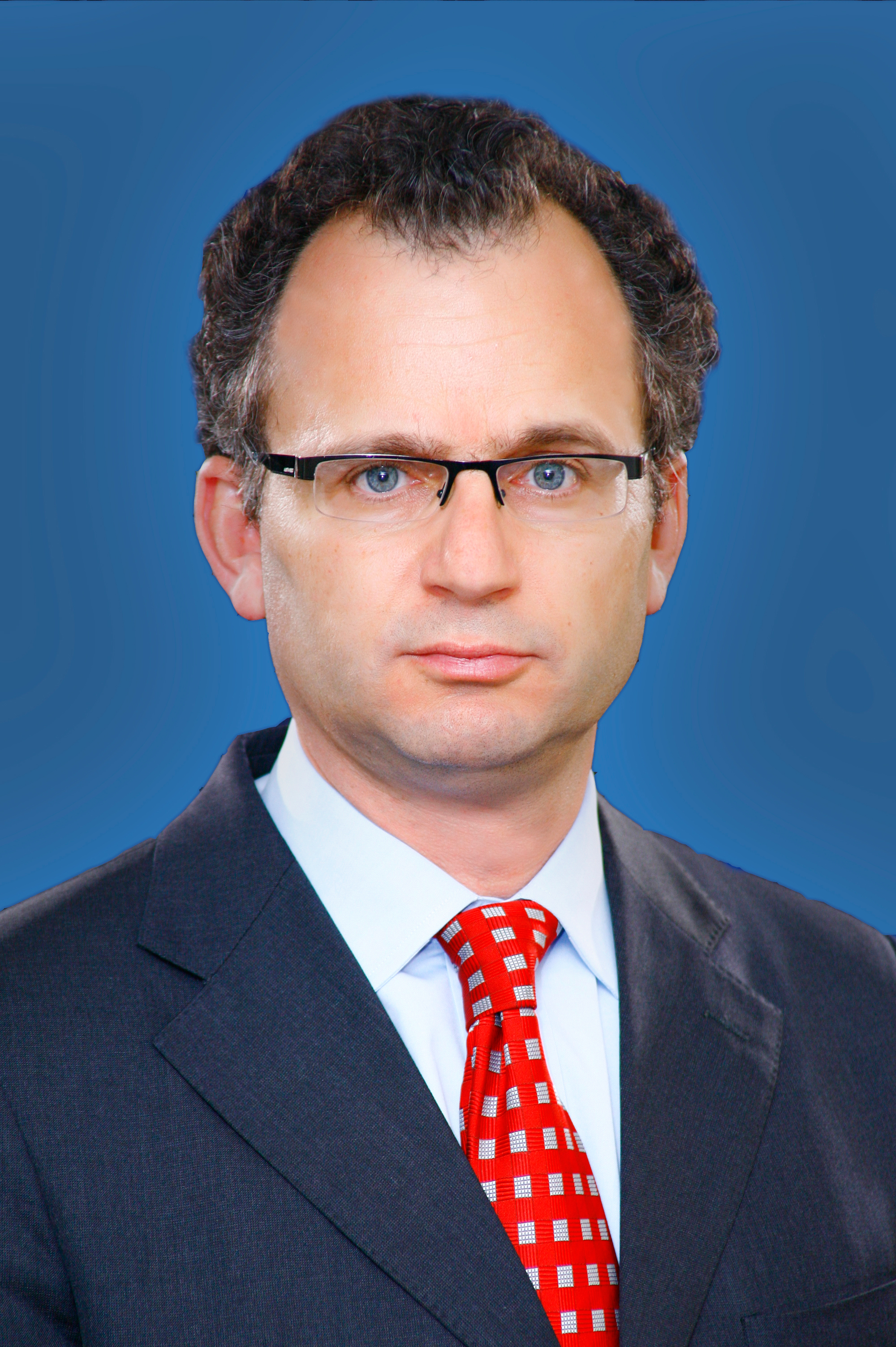{
"authors": [
"Abdulkhaleq Abdullah",
"Paul Salem"
],
"type": "event",
"centerAffiliationAll": "",
"centers": [
"Carnegie Endowment for International Peace",
"Malcolm H. Kerr Carnegie Middle East Center"
],
"collections": [],
"englishNewsletterAll": "",
"nonEnglishNewsletterAll": "",
"primaryCenter": "Carnegie Endowment for International Peace",
"programAffiliation": "",
"programs": [],
"projects": [],
"regions": [
"Egypt",
"Gulf",
"Levant",
"Maghreb"
],
"topics": [
"Political Reform",
"Economy"
]
}
The Arab Spring: A View from the Gulf
Thu, July 28th, 2011
Beirut
The eventful months of the Arab Spring shook the political foundations of states across the region and indicated the necessity of change even in the seemingly immune Gulf region. The Gulf Cooperation Council (GCC) went as far as dispatching a military mission to Bahrain to preserve the legitimacy of the Gulf sheikhdoms. In a talk moderated by Carnegie’s Paul Salem, Abdulkhaleq Abdulla of the United Emirates University described the lessons learned by GCC states and discussed the effect of the Arab Spring on the Gulf region.
Post-‘Arab Spring’
- A new outlook: Abdulla argued that the events of 2011 have succeeded in sweeping away old mind-sets, and ushered in a new era with new political dynamics.
- Pluralism: If the era before 2011 was marked by popular fear and a sense of helplessness, the new Arab citizen is more optimistic and empowered. With this citizens’ empowerment will come increasing political pluralism.
- The Gulf: Gulf countries dealt forcefully with the wave of popular protests among their own citizens, after the attempt to challenge the monarch in Bahrain, Abdulla said. He argued that GCC states are simultaneously affected by and influence changes in the Arab Spring.
Arab Spring Reveals Weak and Strong Points in Gulf Society
The Gulf states were affected by the Arab Spring differently. Abdulla explained that Bahrain and Oman experienced a negative impact, while Qatar and the United Arab Emirates (UAE) avoided serious problems. Saudi Arabia was somewhere in the middle suffering setbacks and advances, noted Abdulla.
- Bahrain: Bahrain’s government had begun contemplating the option of a constitutional monarchy, but the protestors demanding a regime change prompted Saudi military intervention, explained Abdulla.
- Saudi Arabia: According to Abdulla, Saudi Arabia achieved a tripartite political victory in Bahrain by preventing the spread of the Arab Spring into the Gulf heartland, containing Iranian influence, and halting Washington’s call to establishing a constitutional monarchy in Bahrain.
- Qatar: Qatar is a media and diplomatic giant that played a key role in the Arab Spring through the pan Arab news channel Al-Jazeera and through the diplomacy of its emir, Abdulla said.
- UAE: The Arab Spring provided an economic stimulus to the UAE and Dubai in specific. Dubai today plays a major role as a hub for business, attracting Syrian and Egyptian businessmen fleeing uncertainty in their countries, added Abdulla.
Points of Weakness and Strength in the Gulf Security Structure
- Overall benefit: The GCC as a body benefited from the Arab Spring, Abdulla asserted. By sending forces into Bahrain, GCC countries sent a message to the world that whenever the Gulf seeks to protect its security it can and will coordinate independently from Washington. Gulf diplomacy was also very active in countries like Yemen.
- The internal threat: The Gulf States learned that the biggest threat to Arab states is the internal threat. The conception that external security insured internal security proved faulty.
- Iran: Iran’s ability to politically seize the opportunity of entering the Gulf region should not be underestimated, Abdulla warned. An Iranian loss equals a Gulf gain and vice versa.
- Islamists: The growth of Islamist groups in Egypt, Syria, or elsewhere could certainly impact politics in the Gulf, Abdulla added.
The Arab world is currently in a revolutionary mood, Abdulla said. In the Gulf, people have a reformist inclination and have not demanded regime change. The Gulf monarchies now understand that they cannot postpone reforms. The issue of constitutional monarchy, democracy, accountability, and other reforms will have to be considered. This is an era in which people are calling for their freedom and right to participate in government; Gulf states are not an exception to the trend, concluded Abdulla.
Carnegie does not take institutional positions on public policy issues; the views represented herein are those of the author(s) and do not necessarily reflect the views of Carnegie, its staff, or its trustees.
Event Speakers
Abdulkhaleq Abdullah
Retired Professor of Political Science, Nonresident Senior Fellow at Harvard University Belfer Center for Sciences and International Affairs, Member of Emirati Thinkers

Abdulkhaleq Abdullah is a retired professor of Political Science, nonresident Senior Fellow at Harvard University Belfer Center for Sciences and International Affairs, Member of Emirati Thinkers. He was a former Chairman of the Arab Council for Social Science and served as director of Gulf Research Unit.
He holds PhD in Political science from Georgetown University and MA from American University in Washington D.C. Professor Abdulla was a Senior Fellow at LSE, a Fulbright Scholar and was a visiting professor at the Center for Contemporary Arab Studies, Georgetown University and nonresident follow at the Arab Gulf Institute in Washington DC.
